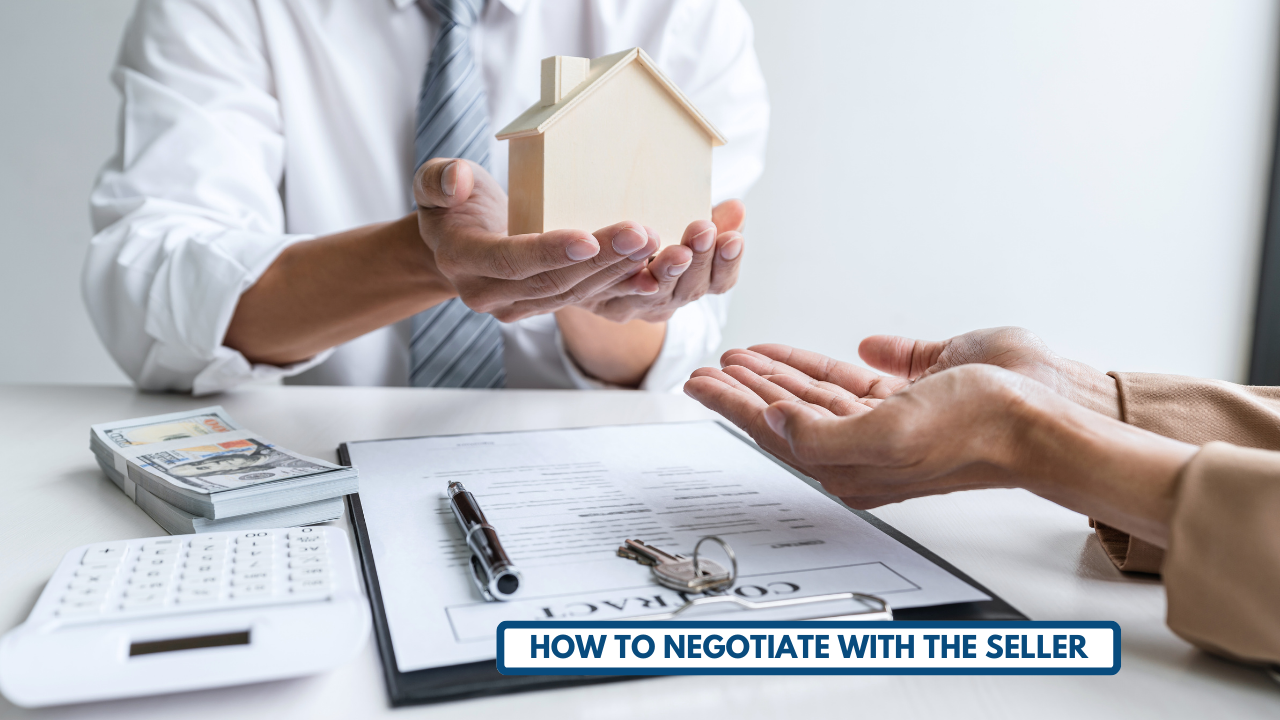How to Negotiate with the Seller
get the best deal possible
Looking to buy a house but not sure how to negotiate with the seller? We'll give you the tools and tips you need to navigate the negotiation process and get the best deal possible. From understanding market conditions and setting a realistic budget, to crafting a strong offer and closing the deal, we'll cover everything you need to know to be a successful negotiator.
More of a reader? Catch the video transcript below!
When you’re a buyer trying to negotiate a good deal with the seller, there are basically two buckets that things fall into: price and terms.
Price includes the price of the property plus other monetary concessions and the way you might structure a deal.
Terms include things like timing contingencies and negotiating repairs.
So, let’s dive in and talk about how you as the buyer can go about negotiating the best deal that you can with the seller.
Know the Importance of Leverage
I think the biggest thing that buyers miss when it comes to negotiating with the seller is leverage. You have to have leverage — without it, you cannot negotiate.
So, if there is one home on the market and ten people want it, you have pretty limited leverage. You’re not going to be able to lowball the seller because they have plenty of other people willing to buy their property.
Let’s compare this to a slower market where the home has been on the market for a while. You can have a higher likelihood of convincing a seller to take a lower offer.
For example, a couple of months ago there was a condo complex in Mission Valley that I was looking into for a buyer. There were four of the exact same units available and they were all priced at $500,000. Guess what? They all sat on the market for 50 or 60 days.
So, if I was a buyer in that situation, I have leverage.
I can just write an offer for each place and see if anybody’s willing to move. If they won’t come down on price, maybe they’ll be willing to concede on some terms or offer other money concessions like closing cost credits, the appraisal, termite repair, or things of that nature.
For example, I could negotiate timing — if I’m in a lease that isn’t up for three more months, maybe I could ask the seller for a longer escrow period or something of that nature.
I could also negotiate on contingencies. So the contingency is basically saying, “I’m willing to buy this house as long as the appraisal is good, the inspection checks out, and my loan is approved.” The more contingencies you can keep in place, the lower the risk to you as the buyer.
Repairs are another thing I can negotiate with the seller if I have leverage. Say I get an inspection done on a property and there are some issues that pop up. I could come to the seller and say, “Hey, your roof is shot. I want a new roof before I agree to purchase this property.”
When you have leverage, that’s when you can negotiate.
Build Rapport With the Seller
Another piece of the puzzle is building a relationship with the seller.
In my case, if I’m working with a listing agent, I always try to build rapport with them. If I’m walking a military couple through a house and we see military plaques on the walls, one of the things I’m going to tell that listing agent is that my clients are in the military as well.
When you build rapport, it makes it a much more personal situation. You’d be surprised how much money people are willing to leave on the table and how much of a deal you can get just by finding common interests between the buyer and seller.
So, when you’re actually in the home, see if there are any talking points in this person’s life that could help you build rapport.
Also, if your real estate agent can build a solid relationship with the seller’s agent, that can be helpful. Any of my real estate friends out there know that a big part of getting a transaction done smoothly is the other agent involved in the transaction. So, if you’re incompetent or kind of a jerk that’s unable to build rapport with the other side, it’s easy for you to get overlooked (especially in a competitive market).
So, make sure your agent is skilled in building rapport with others as well!
Know When to Walk Away
There’s leverage, there’s rapport, and there’s understanding the seller’s needs, and then there’s knowing when to walk away from a deal.
You need to be realistic on the low end with what you can get out of the seller, but there’s also a realistic range of the high end where the sellers aren’t budging on anything and they want you to pay over list price.
So, understand your leverage, understand where the seller is coming from, and then understand the reasonable range of what you can get away with in a negotiation so you can get the best deal that works for you.
Thanks for reading, guys! See you in my next one!
Brent Edwards (aka Brent the Broker) is a residential real estate agent and Realtor in San Diego, CA who helps clients buy and sell homes in San Diego, California and all surrounding areas. Brent is a highly-recommended Realtor in San Diego by family, friends and past clients. Call Brent today at 619-550-8070 if you have any questions about real estate in San Diego or you'd like to buy or sell a home.





